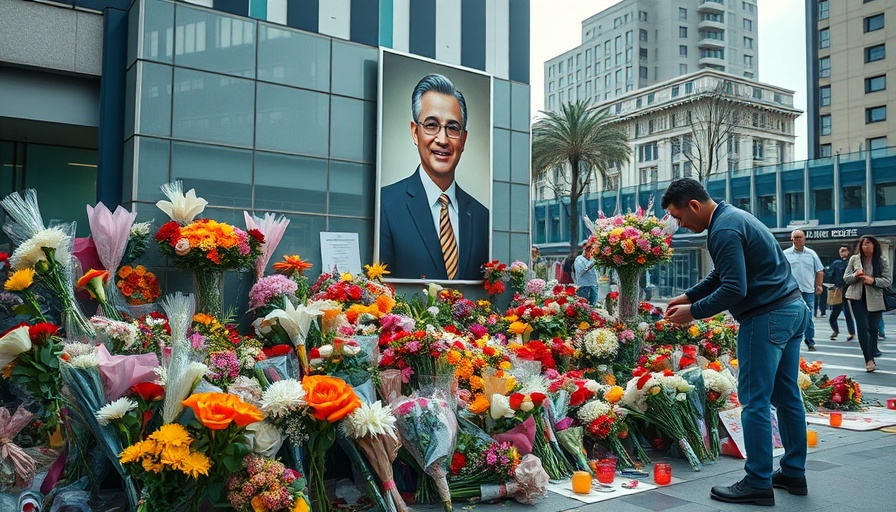
Controversial Remarks Cause Ripple Effect in Massachusetts Schools
Two teachers in Massachusetts have been placed on administrative leave following their reactions to the tragic shooting death of Charlie Kirk, a prominent conservative figure and founder of Turning Point USA. Their social media posts have ignited a debate surrounding professionalism in educational environments and the broader ramifications of expressing political viewpoints.
Background on Charlie Kirk's Death: A Political Tragedy
Charlie Kirk, a recognized champion for conservative youth movements, was shot during a public event in Utah. The incident has shocked supporters and adversaries alike, especially given Kirk's polarizing presence on college campuses. As discussions around gun violence and the implications of such events continue to evolve, reactions to Kirk's death highlight how personal beliefs can lead to professional consequences for educators.
The Role of Social Media in Shaping Opinions
One teacher reportedly wrote on Instagram, “Just a reminder, we’re NOT offering sympathy,” a comment that reverberated across social media platforms, accumulating over two million views. Critics seized the opportunity to highlight what they view as an inappropriate reaction from an individual entrusted with nurturing young minds. The rapid dissemination of these comments via platforms like Instagram and TikTok illustrates how social media can influence public perception and incite immediate calls for accountability.
Educational Administration's Response: A Balancing Act
In light of this situation, both the Wachusett Regional and Framingham Public Schools administrations emphasize their commitment to a respectful educational environment. Superintendents from both districts have made statements condemning violence and assuring parents that investigations are underway to address these incidents. The added police presence at schools signifies the seriousness with which these allegations are taken, although no threats have been identified.
Recent events underscore the tensions that can arise when educators express personal sentiments online, impacting both their careers and public discourse. As national conversations surrounding political violence and educational responsibility unfold, these cases serve as a crucial examination of how personal and professional lives often intersect.
Ultimately, as this dialogue continues in Massachusetts and across the nation, it invites educators, parents, and students alike to reflect on the balance between personal beliefs and the responsibilities that come with being part of the educational community.
 Add Row
Add Row  Add
Add 




Write A Comment